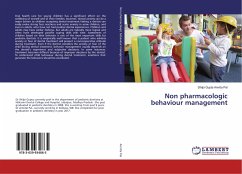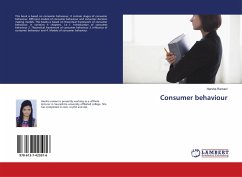
Non pharmacologic behaviour management
Versandkostenfrei!
Versandfertig in 6-10 Tagen
37,99 €
inkl. MwSt.

PAYBACK Punkte
19 °P sammeln!
Oral health care for young children has a significant effect on the wellbeing of oneself and of their families; however, dental anxiety can be a major barrier to children accepting dental treatment.Visiting a dentist can easily evoke strong fear reactions and acute anxiety in some children, and even in adults, who have not had positive dental experiences. Children and adults may have similar feelings, but adults are typically more logical and often have developed positive coping skills over time. Assessment of children based on their behavior is one of the most important skills for pediatric d...
Oral health care for young children has a significant effect on the wellbeing of oneself and of their families; however, dental anxiety can be a major barrier to children accepting dental treatment.Visiting a dentist can easily evoke strong fear reactions and acute anxiety in some children, and even in adults, who have not had positive dental experiences. Children and adults may have similar feelings, but adults are typically more logical and often have developed positive coping skills over time. Assessment of children based on their behavior is one of the most important skills for pediatric dentists. It is empirically well known that a patient who exhibits anxiety or fear of dental treatment will present a noncooperative attitude during treatment. Even if the dentist considers the anxiety or fear of the child during dental treatment, behavior management usually depends on the dentist's experience and subjective decisions. In some instances, treatment becomes difficult because ofimproper decisions by the dentist. To understand child behaviour during dental treatment, emotions that generate the behaviors should be elucidated.












